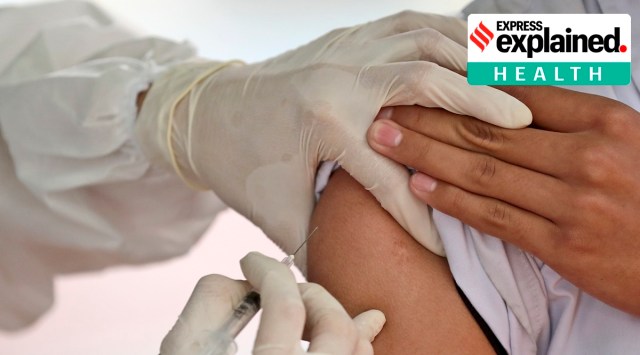New research: Immune response to Covid-19 vaccine found linked to age
The laboratory results reflected a clear linear progression from youngest to oldest: the younger a participant, the more robust the antibody response.
 A medical worker administers a vaccine for Covid-19 in Tangerang, Indonesia. (AP Photo/Tatan Syuflana, File)
A medical worker administers a vaccine for Covid-19 in Tangerang, Indonesia. (AP Photo/Tatan Syuflana, File)Older people appear to have fewer antibodies against the novel coronavirus, a new laboratory study from Oregon Health & Science University (OHSU) suggests. The study has been published in the Journal of the American Medical Association.
The authors emphasised that even though they measured diminished antibody response in older people, the vaccine still appeared to be effective enough to prevent infection and severe illness in most people of all ages.
Researchers measured the immune response in the blood of 50 people two weeks after their second dose of the Pfizer vaccine against Covid-19. They grouped participants into age groups and then exposed their blood serum in test tubes to the original “wild-type” SARS-CoV-2 virus and the Gamma variant that originated in Brazil.
The youngest group – all in their 20s – had a nearly seven-fold increase in antibody response compared with the oldest group of people between 70 and 82 years of age. In fact, the laboratory results reflected a clear linear progression from youngest to oldest: the younger a participant, the more robust the antibody response.
Source: Oregon Health & Science University
- 01
- 02
- 03
- 04
- 05






































